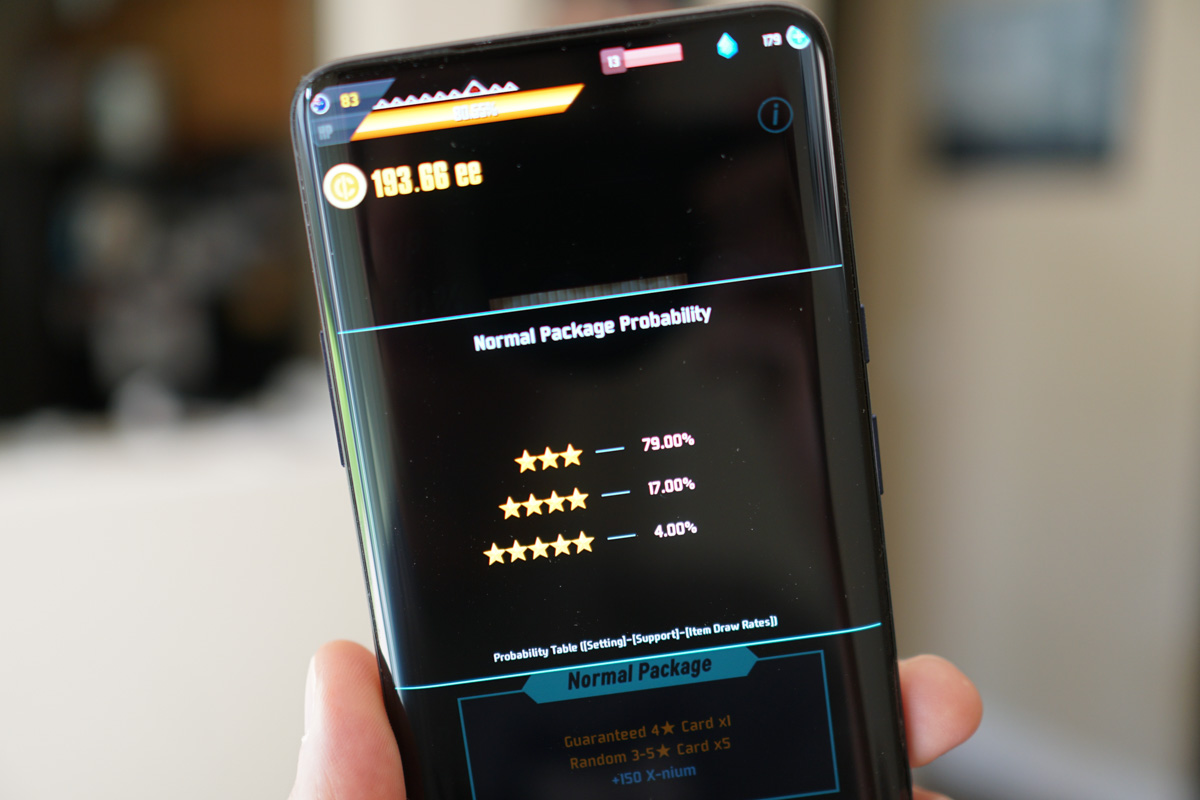Paying real money for 'loot boxes' in some video games, such as past versions of 'Call of Duty,' was the only way to score top virtual weapons. Senator Josh Hawley, R-Mo., is introducing legislation that seeks to ban exploitative video game industry practices that target children like loot boxes and pay-to-win, he announced on Wednesday.
Video game companies that use loot boxes in their games have been put under a lot of fire by various governments throughout the world for a very, very, serious problem.
- Video game loot boxes addictive and a form of 'simulated gambling', Senate inquiry told. Read more 'A common line amongst industry representatives is that loot boxes are a niche feature in.
- Loot boxes bring in hundreds of millions of dollars in revenue for top titles like EA Sports' Madden and FIFA, as well as Epic Games' Fortnite, another video game caught up in loot box-related class-action litigation. (Other titles under scrutiny include Supercell's Clash Royale and Brawl Stars and Nintendo's Mario Kart Tour.) But for.
Namely, these companies use loot boxes, loot crates, and other means to effectively cause addiction to which the player would spend more money in the game.
Not only do most of these games cost $60 each, but they also employ other means to make the player give them more money. Companies such as EA, Activision, and Blizzard, in particular, for games such as FIFA, Star Wars Battlefront 2, Call of Duty, and Overwatch have made a fortune off selling loot boxes on top of their overly priced video games.
Poker vip room. So, this is a practice that many Triple-A video game companies do. But many people aren't familiar with the dangers of such practice. And to top it off, these companies are changing the industry we love.
So, with all that said, let's dive deeper into it.
What Are Loot Boxes?
Whether you have any understanding of the subject or none at all, chances are you've opened a loot box (or anything of the kind) in one of the games you're playing.
If this is the case, do know that you're engaging in gambling. You might think that you're doing it to get some cool skins for your character models, weapons, etc, but what you're actually doing is giving in to your addiction.
The problem with loot boxes is that they aren't free, and most can cost anything from a dollar to whatever the company in question deems.

But what is the thing that classifies them as gambling? Well, it's all down the fact that every loot box gives you a chance to get a specific rarity of the item. In most cases, you will get an item that won't be a return on your investment, and in most cases cost nothing in comparison.
The 'fun' part is when you do actually get an item that is worth more than what you're paying for the loot box. And this is the single aspect as to why these transactions can be categorized as loot boxes.
So, to summarize, loot boxes are, in most cases, simple chests found in-game. These chests can eighter come free, which you would need to buy a key to open, or can cost X amount of dollars. Furthermore, loot boxes can also be bought with in-game currencies, which you would need to grind to obtain.
As we mentioned earlier, these boxes can contain anything from skins for weapons, characters, gadgets, etc, to boosters, and various items. And of course, the 'fun' part of them being that you actually have no idea what you'll get until you open it.
If we'd have to somehow explain these to you using real-life examples, they would essentially resemble baseball cards and kinder eggs, in a sense that you have no idea what you're getting when buying them.

Because of that, many governments are calling this practice gambling, and are passing laws to restrict them. FHERehab has written an excellent article on the subject of Gambling in video games, and it thoroughly explains how loot boxes can cause an addiction.
History of Loot Boxes
Now that we've explained what they are, let's dwell deeper into the history.
Loot boxes were first introduced by Chinese video game company Zhengtu Network for ZT Online. The developers of the game were sick of players pirating their game and playing for free, so they decided to make it free and introduce a reward, loot box, system that ensures they make a revenue of in-game purchases.
The company enjoyed massive success so other Chinese video game companies quickly followed on the trend.
In the Western world, the first time loot boxes were introduced to us was with Team Fortress 2. For those that don't know, Team Fortress 2 is created by Valve, the company behind Half-Life, Dota 2, and CS:GO. Valve employs a loot-box system in three of those games, excluding Half-Life.
However, Valve doesn't charge a penny for their games, except for the recent changes to CS:GO; but the reasons for it were mainly down to hackers, and you can even still play the game for free.
The trend than quickly spread with other companies such as Blizzard, EA, Activision, and many others, but the catch here is that their games also cost a fortune, unlike Valves'.
Loot Boxes In Video Games Call For Evidence
So now, let's touch on the gambling aspect of loot boxes.
Loot Boxes ARE Gambling

But what is the thing that classifies them as gambling? Well, it's all down the fact that every loot box gives you a chance to get a specific rarity of the item. In most cases, you will get an item that won't be a return on your investment, and in most cases cost nothing in comparison.
The 'fun' part is when you do actually get an item that is worth more than what you're paying for the loot box. And this is the single aspect as to why these transactions can be categorized as loot boxes.
So, to summarize, loot boxes are, in most cases, simple chests found in-game. These chests can eighter come free, which you would need to buy a key to open, or can cost X amount of dollars. Furthermore, loot boxes can also be bought with in-game currencies, which you would need to grind to obtain.
As we mentioned earlier, these boxes can contain anything from skins for weapons, characters, gadgets, etc, to boosters, and various items. And of course, the 'fun' part of them being that you actually have no idea what you'll get until you open it.
If we'd have to somehow explain these to you using real-life examples, they would essentially resemble baseball cards and kinder eggs, in a sense that you have no idea what you're getting when buying them.
Because of that, many governments are calling this practice gambling, and are passing laws to restrict them. FHERehab has written an excellent article on the subject of Gambling in video games, and it thoroughly explains how loot boxes can cause an addiction.
History of Loot Boxes
Now that we've explained what they are, let's dwell deeper into the history.
Loot boxes were first introduced by Chinese video game company Zhengtu Network for ZT Online. The developers of the game were sick of players pirating their game and playing for free, so they decided to make it free and introduce a reward, loot box, system that ensures they make a revenue of in-game purchases.
The company enjoyed massive success so other Chinese video game companies quickly followed on the trend.
In the Western world, the first time loot boxes were introduced to us was with Team Fortress 2. For those that don't know, Team Fortress 2 is created by Valve, the company behind Half-Life, Dota 2, and CS:GO. Valve employs a loot-box system in three of those games, excluding Half-Life.
However, Valve doesn't charge a penny for their games, except for the recent changes to CS:GO; but the reasons for it were mainly down to hackers, and you can even still play the game for free.
The trend than quickly spread with other companies such as Blizzard, EA, Activision, and many others, but the catch here is that their games also cost a fortune, unlike Valves'.
Loot Boxes In Video Games Call For Evidence
So now, let's touch on the gambling aspect of loot boxes.
Loot Boxes ARE Gambling
Loot Boxes In Video Games
Everyone that has opened one knows how thrilling it can be to get a good item. However, to get a knife in CS:GO, Messi and Ronaldo in FIFA, or any other legendary item in other games, you would essentially need to open a ton of them.
So the gambling and addiction part actually stems from this. You've probably seen dozens of videos where a notable player in a game that has a loot-box system would open hundreds of crates and live stream the whole thing.
In most cases, the player would not get a return on their investment, until he gets the thing he wants.
But unlike gambling, video game publishers find loot boxes more appealing because of a single reason. Unlike gambling, with loot boxes, the house never wins.
Sure, you might get a crappy 4 cent item from a $2 loot box, but it's still something in their eyes.
And let's get back to Valve for a second. Unlike other games, Valve also is the creator of Steam. Steam is the largest video game marketplace platform where you can buy games. But Steam also has a community marketplace, where the main listings are items from Team Fortress, Dota 2 and CS:GO.
Loot Boxes Controversy
This is important to note because you can sell all of your items there. So if you open a CS:GO crate and receive a knife, you can essentially get a return on your investment by selling it.
Who Started Loot Boxes In Video Games
The real gambling and addiction problem with loot boxes mostly comes in the form of a lack of government regulations, where video game companies make billions of dollars each year through an unregulated system of in-game microtransactions in some games like OSRS, it takes months to obtain the loot boxes. It could even take years if you really wanted to acquire boxes as many as you can. If you are an OSRS player, you know it's worth the long hour of grinding. Let me know your thought and visit Only4rs.com
